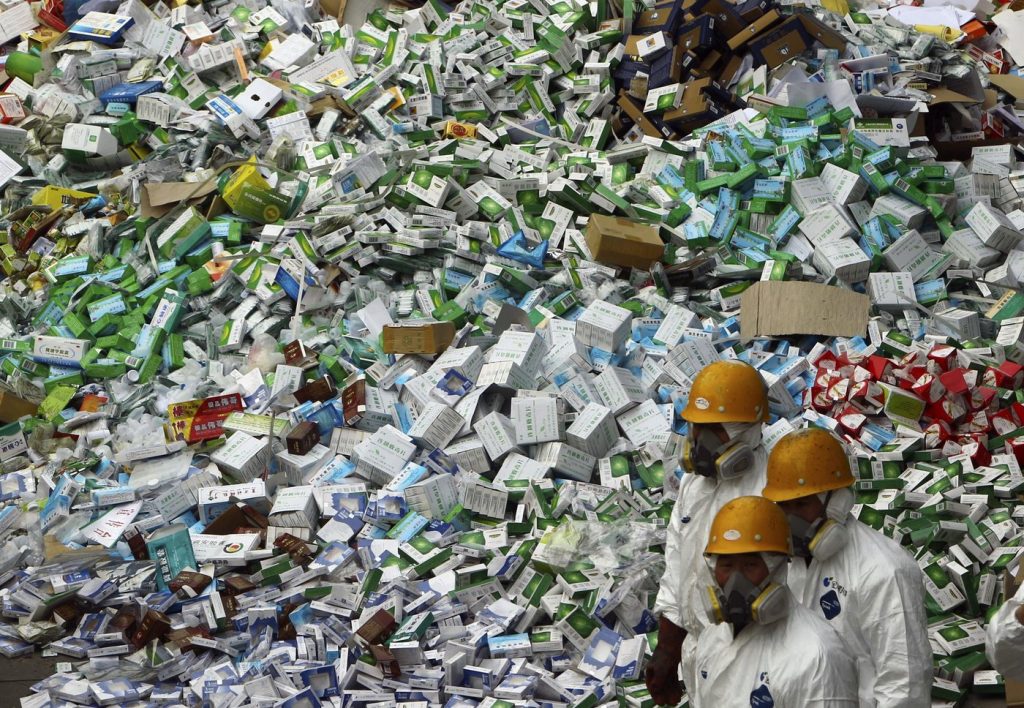BANGKOK (AP) – A recent report from the U.S. Trade Representative highlighted that nearly all of the world’s 35,000 online pharmacies operate illegally, putting consumers at risk of receiving ineffective or dangerous medications. This annual report, focused on “notorious markets,” particularly emphasizes the significant dangers associated with these illicit online drug sellers.
The U.S. Trade Representative’s report identified around three dozen online retailers, especially those based in China and other Asian countries, for engaging in the sale of counterfeit and illegal products. Alarmingly, it states that a staggering 96% of online pharmacies have been found to violate laws, with many lacking necessary licenses and selling medications without prescriptions or appropriate safety warnings.
Many of these websites mimic legitimate e-commerce platforms and falsely claim FDA approvals, misleading consumers. The Food and Drug Administration (FDA) and the U.S. Drug Enforcement Administration (DEA) have both raised concerns regarding the risks associated with purchasing prescription drugs from these sources. A survey conducted by the Alliance for Safe Online Pharmacies' Global Foundation revealed that nearly one in four Americans who have used online pharmacies reported encountering substandard or hazardous medicines.
Moreover, the report detailed a disturbing case last year in which federal prosecutors uncovered a network selling counterfeit pills, disguised as common prescription drugs. These pills included potentially lethal synthetic opioids and led to at least nine overdose fatalities between August 2023 and June 2024 after consumption of counterfeit products. The report warns that not only may these drugs contain inert ingredients or allergens, but they are also often manufactured in unsanitary conditions, with no annual statistics provided regarding deaths or harm caused.
The USTR's annual report also included examples from within the U.S. while emphasizing the dangers of imported components like fentanyl from China. It noted that many of these illegal online pharmacies operate outside of U.S. jurisdiction, complicating enforcement efforts.
Despite these alarming findings, the “Notorious Markets List” also acknowledged certain progress in combatting counterfeit goods. For instance, a collaboration between U.S. authorities, industry groups, and police led to the dismantling of a piracy ring in Hanoi, Vietnam, in July and August. This piracy network, known as Fmovies, was identified as the largest pirated movie site globally, amassing more than 6.7 billion visits from January 2023 to June 2024.
In another case linked to Vietnam, individuals operating the pirate television platform BestBuyIPTV were convicted, facing fines and property forfeiture. The report pointed out additional crackdowns on online piracy in Brazil and the United Kingdom, as well as raids on sellers of counterfeit goods in Kuwait. However, challenges remain with cyberlockers that hinder efforts to curb piracy, and some internet service providers (ISPs) still offer protections for users of pirate sites.
The report singled out Avito, a Russian-based ad platform, as an ISP allegedly allowing the advertisement of counterfeit products. Additionally, Baidu Wangpan, a cloud storage service from Baidu, has been noted for its alleged failure to effectively enforce copyright protections. Other platforms highlighted include social commerce sites like Pinduoduo and Douyin Mall, owned by ByteDance, which still host numerous counterfeit goods despite efforts to implement new protections.
Furthermore, Shopee, a Singapore-based e-commerce site, was mentioned in connection with varying degrees of success among country-focused platforms in addressing piracy issues, with certain Southeast Asian and South American sites performing better than others. IndiaMART, a significant business-to-business marketplace in India, continues to offer many counterfeit products.
While a substantial portion of intellectual property theft has transitioned online, the report also drew attention to physical locations notorious for selling counterfeit items, including markets in Turkey, bazaars in the UAE, and the Saigon Square Shopping Mall in Ho Chi Minh City, Vietnam. The report acknowledged that Bangkok’s MBK Center, a mall housing around 2,000 stores, has actively sought to combat counterfeiting, although such items still remain available for purchase.











